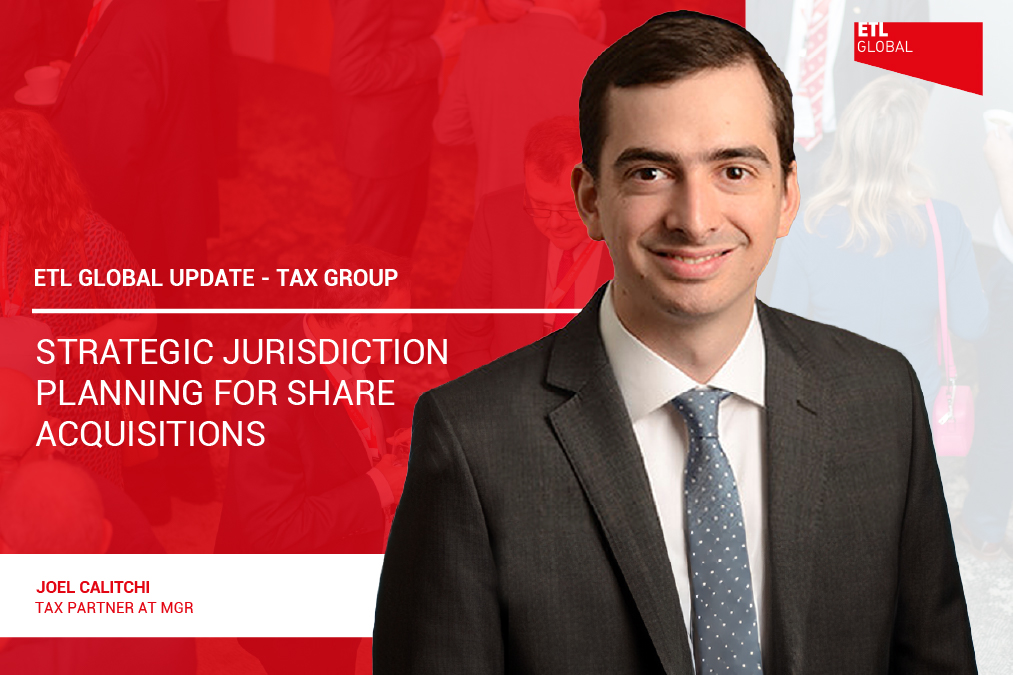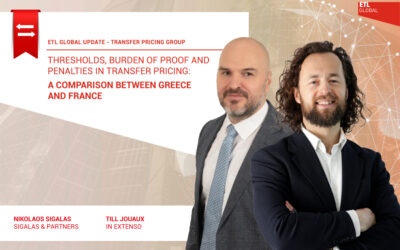This benchmarking exercise was carried out by Joel Calitchi, Esther Ollech and Frédéric Mortamais together with the members of the ETL GLOBAL Tax Working Group.
The study considers how the location of an acquisition vehicle (“Holdco”) can materially impact the tax efficiency of a cross-border share acquisition, where a multinational (“Topco”) desires to acquire a trading business (“Tradeco”) in a different jurisdiction via Holdco. By financing the share acquisition with debt from Topco, the ability to secure tax relief on financing costs, access losses from group companies, and manage tax leakages on the level of Holdco becomes central to optimising the investment structure.
The analysis focuses on the considerations that can influence the location of Holdco. These include the availability and scope of interest deductibility (particularly under corporate interest restriction rules), rules governing the use of current and carried-forward losses, requirements around ownership periods to access losses from group companies, and the tax treatment of both inbound and outbound payments such as withholding taxes on interest and dividends, taxation of dividends received, and tax on capital gains on exit.
The purpose is to highlight how locating Holdco in the same jurisdiction as Tradeco, when there is commercial substance for doing so, can deliver greater tax efficiencies across the life cycle of the investment. The table summary provides a jurisdiction-by-jurisdiction comparison of these key tax attributes to support tax efficient structuring decisions.





